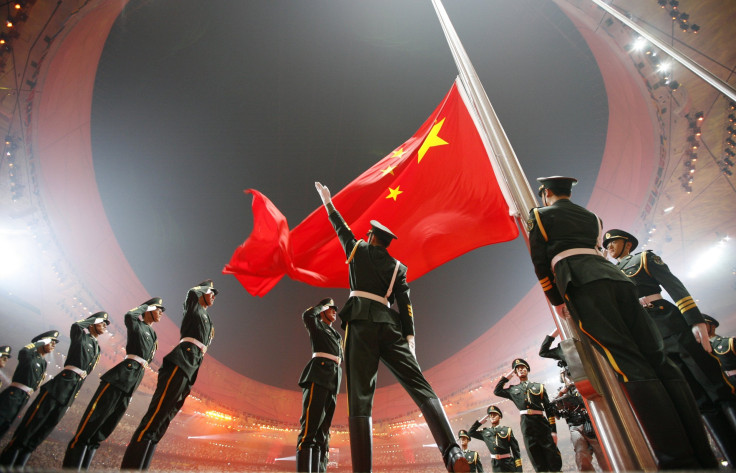Chinese Media Say Donald Trump ‘Seriously Wrong’ About Economic Relationship, Call His Foreign Policy ‘Nationalistic And Inconsistent’

SHANGHAI — An official Chinese newspaper has accused Republican presidential hopeful Donald Trump of being “seriously wrong” about China’s economic relationship with the U.S., and has questioned his claim that he wants to develop amicable relations with Beijing.
During his foreign policy speech in Washington on Wednesday, Trump accused China of stealing U.S. jobs, as well as government and economic secrets, and said the Barack Obama administration had failed to put sufficient pressure on China to “rein in North Korea” over its recent nuclear and missile tests.
Trump said the U.S. had economic “power over China and people don’t understand it.” And he suggested he would hold summits with both China and Russia, which would demonstrate U.S. strength and thus regain their respect -- though he also said “we are not bound to be adversaries. We should seek common ground based on shared interests.”
However, an op-ed in the Global Times, an English-language newspaper published by China’s official People’s Daily, criticized Trump’s claims of a Chinese "assault on American jobs," and his comments about the U.S.’s "economic power" over China.
“Trump is seriously wrong about how economies work in the present world," wrote commentator Liu Zhun. "Even though he voiced willingness to develop a good relationship with China, his blinkered knowledge of US-China business cooperation is worrying.”
And given Trump's warnings about China stealing American jobs, “how trustworthy can his claims of developing an amicable Sino-US relationship actually be?” the article asked. China has previously argued that its investments have created significant numbers of jobs in the U.S., while its manufactured goods have benefited U.S. consumers.
The Global Times said that as an “anti-establishment candidate, Trump's foreign policy is more a scathing complaint about the current foreign policy establishment than a useful set of proposals to improve the wisdom of the White House." It said his speech had called for foreign policy to be both “consistent” and “unpredictable,” suggesting a “fractured” approach “from a politician with a split personality.”
“Most of his proposals are rife with contradictions,” it added. “Without nuances and insights, most of his foreign policy will prove hollow, nationalistic and inconsistent.”
Analysts say Beijing has in recent decades felt relatively comfortable with U.S. Republican presidents, seeing them as less likely to push China on issues such as human rights. And Trump himself has aroused criticism in the U.S. for remarks on China’s crackdown on the Tiananmen protests in 1989 – after appearing to describe the student pro-democracy movement as a “riot” during a campaign debate.
But while Chinese experts often dismiss criticisms of their country made in a U.S. election year as mere rhetoric, Trump’s frequent criticisms of China during his campaign have clearly alarmed some – he said, for example, that he would not have welcomed President Xi Jinping to a state banquet when he visited the U.S. last year, but would instead have bought him "a McDonald’s hamburger," adding, "what he has done is suck all the jobs, suck all the money right out of our country."
And while Chinese state media have seized on his campaign – including violence on the campaign trail – as turning democracy into a "joke," the Global Times warned last month that “the rise of a racist in the U.S. political arena worries the whole world."
Some Chinese foreign policy analysts have dismissed Trump’s chances of winning the election, but the Global Times has previously said his rise suggests a new "unpredictability" in U.S. politics, and the latest op-ed concluded that “ironically and uncannily, he is battling his way toward becoming the most powerful man in the world.”
© Copyright IBTimes 2024. All rights reserved.






















